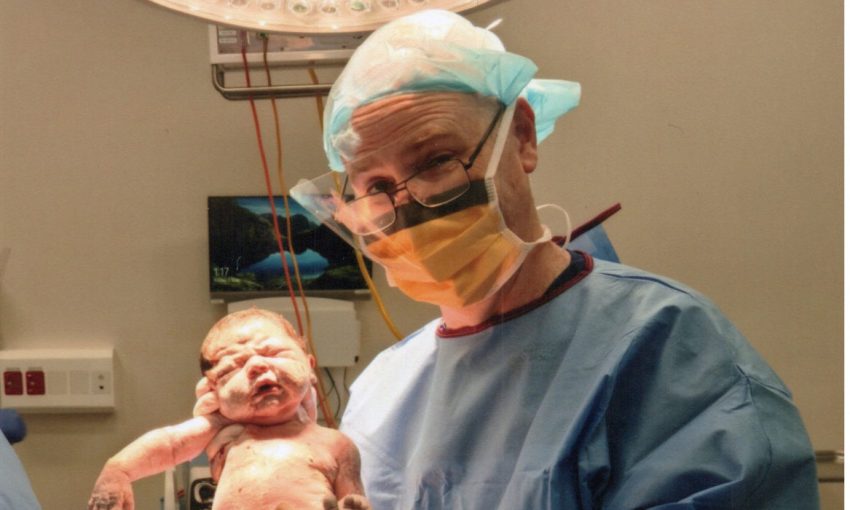Chris Sexton, 52, is an obstetrician, gynaecologist and women’s health specialist who estimates he has delivered 6000 babies over the past 30 years. That number will rise significantly next year, Chris says, with a baby boom on the way thanks to the COVID-19 restrictions.
“Just an ordinary guy who happens to have a very extraordinary job”
Where did you grow up?
I grew up in Oaklands Park, the second of four children to Brian and Veronica Sexton. There was my older sister Elizabeth, me, Philip and Pamela. My father was a public servant and Mum was a homemaker. Six of us in a small home, sharing one bathroom. Mum said we had no choice but to be a close family, which we were and still are. Dad still lives in the family home but sadly Mum passed away four years ago.
I went to a small, Catholic primary school, Christ the King, in Warradale, where most families were like mine – large families in small homes. I had a very happy childhood and, while at times it was a financial struggle for my parents, we children were oblivious to it. I watched a ridiculous amount of television and movies as a child, rushing home from Saturday sport to watch Danny Kaye, Jerry Lewis and Abbot and Costello movies all afternoon. We spent our summer days at Brighton Beach and our evenings peeling our sunburned skin.
I went to Sacred Heart College, renowned for producing outstanding footballers. I was not one of them, but I did enjoy football, as a ruckman for the second 18. Dad said he had never seen a player who could leave a muddy football field looking so clean, perhaps a testament to how hard I was at the ball.
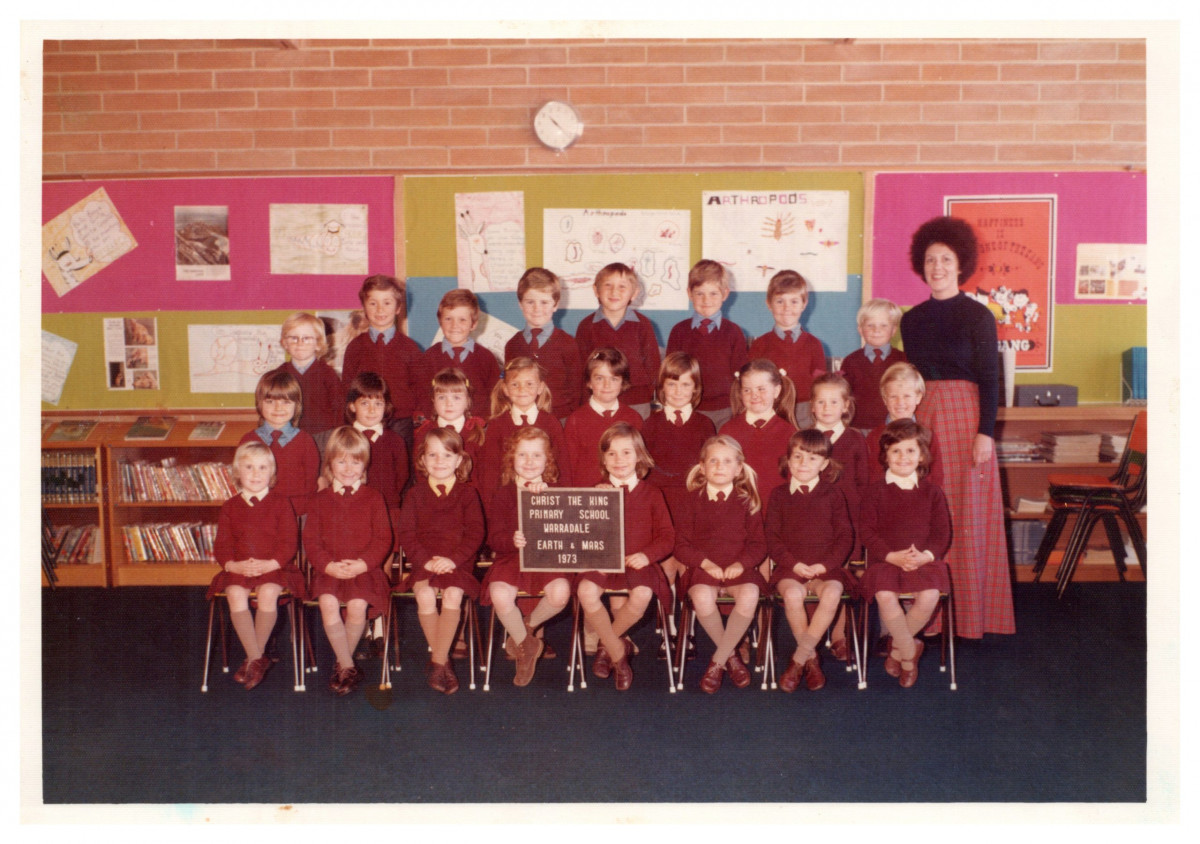
When did you set your sights on medicine and why?
At school, I did a lot of public speaking and debating, so I think everybody, including myself, felt my future lay in the law. I don’t remember ever having an epiphany that medicine was a career I had to pursue. I do remember watching the movie And Justice For All in which Al Pacino plays a burned-out lawyer forced to defend an evil, guilty John Forsythe. I thought to myself, “I could never do that”, and so I turned my sights away from law to medicine. The admission process to medicine was much less complicated then and I doubt I would get past the first hurdle these days.
How was university life?
I really enjoyed my time at Adelaide University and made lifelong friends. I was President of the Medical Student Society in 1990 – a grand title for a job predominantly consisting of writing letters of apology and cheques to pay for repairs to places like the Stonyfell Winery and Dom Polski Centre when some of our celebrations got a little out of control. I had a great part-time job – a kind of professional Master of Ceremonies/ DJ and (ordinary) dinner pianist at the Northgate House in Unley Park, where they held wedding receptions. The wonderful Rosemary Milisits ran the wedding house while her husband Vili ran his eponymous bakery. They were warm and generous employers and we remain friends. If you were married there in the late ’80s, check your wedding video. I’m probably on there somewhere.
One highlight of my uni years was appearing in a Footlights production, the deceptively titled Kafka’s Dick. I played Kafka and, mercifully for everyone, no nudity was required. It was directed by Shaun Micallef and starred now professional actor Francis Greenslade and Adelaide judge Tim Heffernan. I effectively just played myself, the straight man to these brilliant comedic actors, but I loved it. I am not surprised Shaun and Francis are now professional performers because they were meticulous in trying to extract every moment of comedy possible from the rather cryptic play.
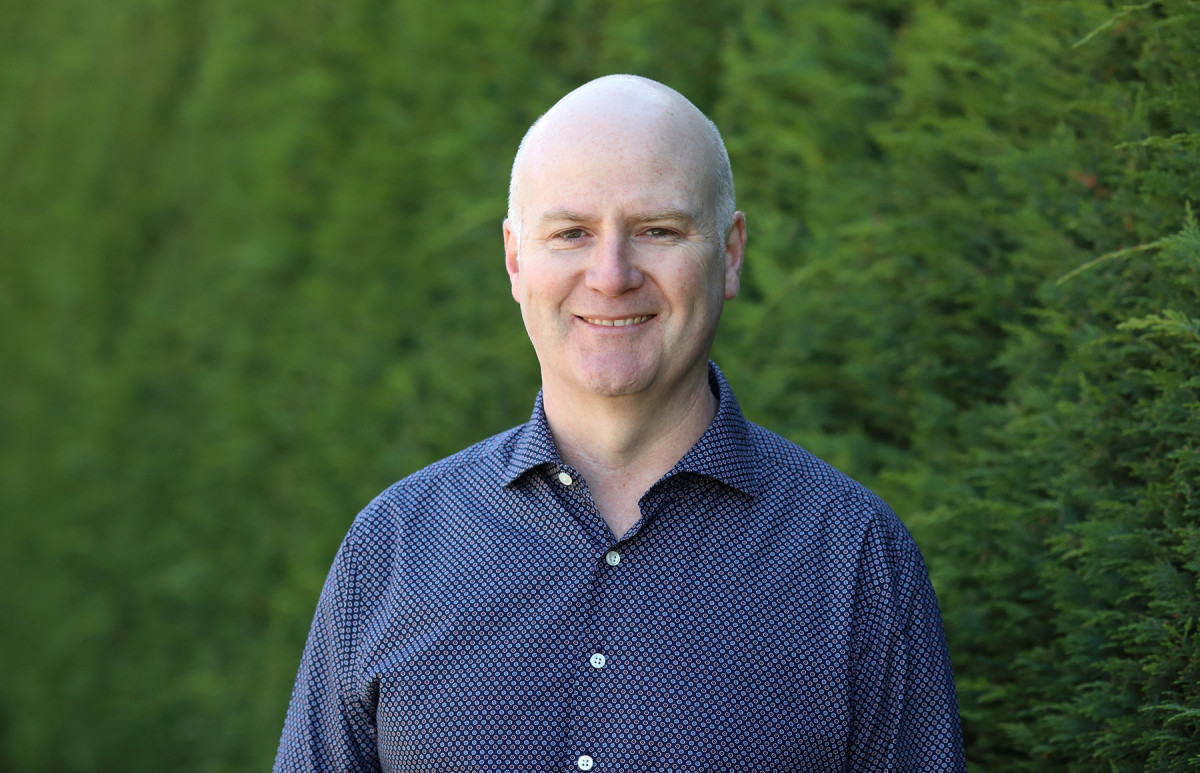
Why did obstetrics appeal to you?
My first adventures in obstetrics and gynaecology came as a medical student at the Queen Elizabeth Hospital in 1990. Unsurprisingly, women did not jump at the opportunity to have some guy stand nervously in the corner while they delivered their baby. I will be forever grateful to the experienced mother who said “Well, he’s got to learn somewhere!” and allowed me to witness her amazing effort in delivering baby Michael. It is an experience no medical student ever forgets but, having only seen it once or twice during my university days, I graduated medicine in 1992 thinking that obstetrics and gynaecology was probably towards the bottom of my list of future career prospects.
So, I decided I wanted to be a paediatrician, but one year as a resident convinced me that it was just too hard. I worked overseas for a time and returned in 1995 to train in general practice, beginning with 12 months at the brand new Women’s and Children’s Hospital in North Adelaide, where I was the most junior doctor in the place on the day it opened its doors. It was such an exciting and rewarding job and I worked with great mentors including doctors John O’Loughlin, Brian Wheatley, John Svigos and Bill Antonas. They were extremely busy obstetricians but never looked tired, still made time to provide a public service and were tremendously patient teachers of medical students, residents and midwives. At the end of the year I applied for training and was accepted.
Tell us about meeting your wife Liz?
My year working in paediatrics was not completely wasted because it was then I met my wife Liz, a paediatric nurse. She was working on the relieving pool which meant she never knew when or where within the hospital she would be working, and nor did I. This meant in order to “bump into her”, I had to find an excuse to visit every ward in the hospital each morning, then repeat the performance again after 3pm in case she was on the late shift. I suspect a desire to get on with her work without constant interruptions led her to acquiesce to date. We have been married almost 25 years and have three children – our eldest Annabel (21), and twins Grace and James (18).
I have dragged Liz across the world twice for my training. In 1994, I worked in a London neonatology unit while she provided home nursing to HIV-positive patients. Then, in 2000, I worked in obstetrics in Bath when Annabel was eight months old. We returned from that trip completely broke with Liz ready to return to work. Just weeks later we found we were expecting twins, so we just resigned ourselves to being broke for a few more years. Now Liz works managing our practice, so she gets to know the couples and enjoys watching their families grow as much as I do. It helps when I leave her stranded at dinner parties. Liz is also from a large, close family and does the lion’s share running ours. She is great fun, has a terrific sense of humour, is a loyal friend and totally dependable.
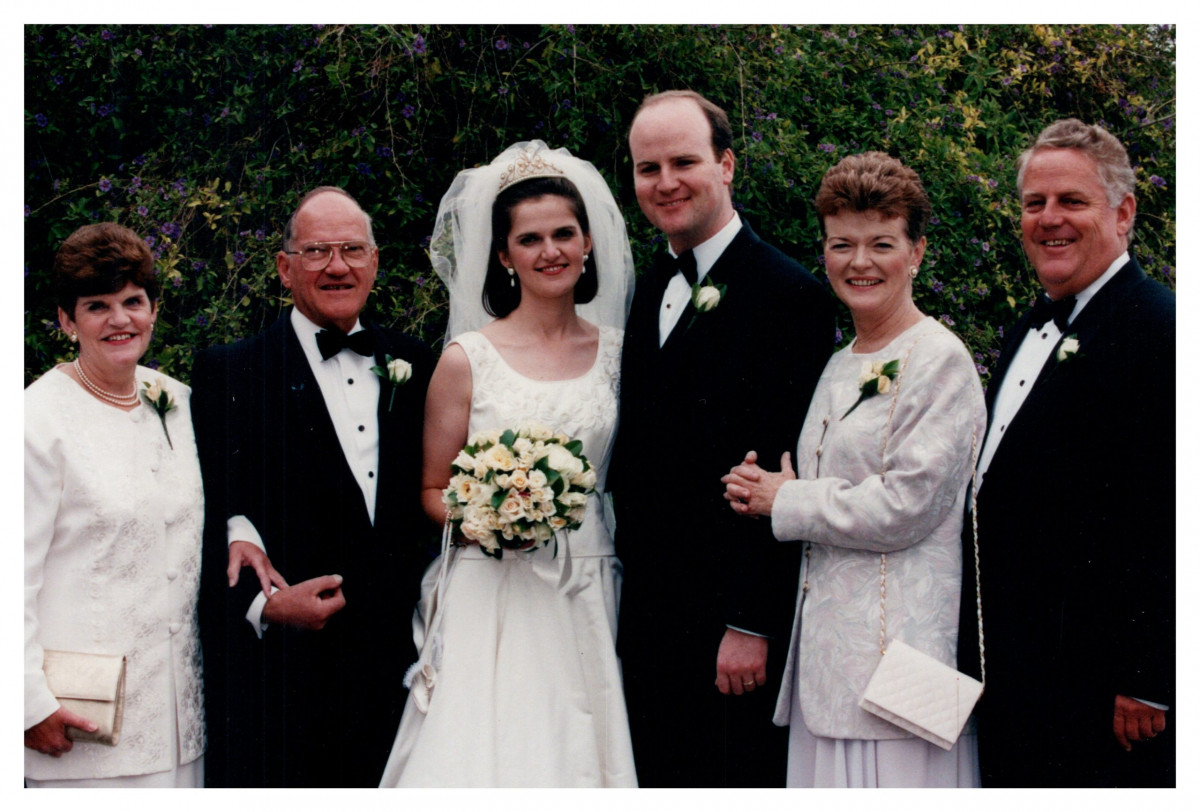
Who delivered your children and what was that experience like for you as a doctor?
When Liz was pregnant she was under the care of Dr Brian Wheatley so she could not have been in better hands. I think my experience was the reverse of most fathers-to-be. I worried a lot about all the things that could go wrong in a pregnancy, particularly with the twins, but I remember being quite relaxed when she was in labour. Once we made it to the hospital I knew it was almost over and I completely trusted Dr Wheatley and the whole process. I could switch off “doctor mode” so completely that I dissolved into an unprofessional crying mess on both occasions. And I was confident my book-learned knowledge would make those first few weeks with the baby much easier. It really didn’t. I joined Brian and his wife Heather in private practice when the twins were three months old.
What do you love most about being a dad?
When they were young it was the uncontrolled excitement and adulation I received each time I came home from work, but now I only get that from our dog, Charlie. Now I love watching the way they are with their friends, their cousins and with our friends. They are interesting, inquisitive and funny and they are becoming marvellous adults.
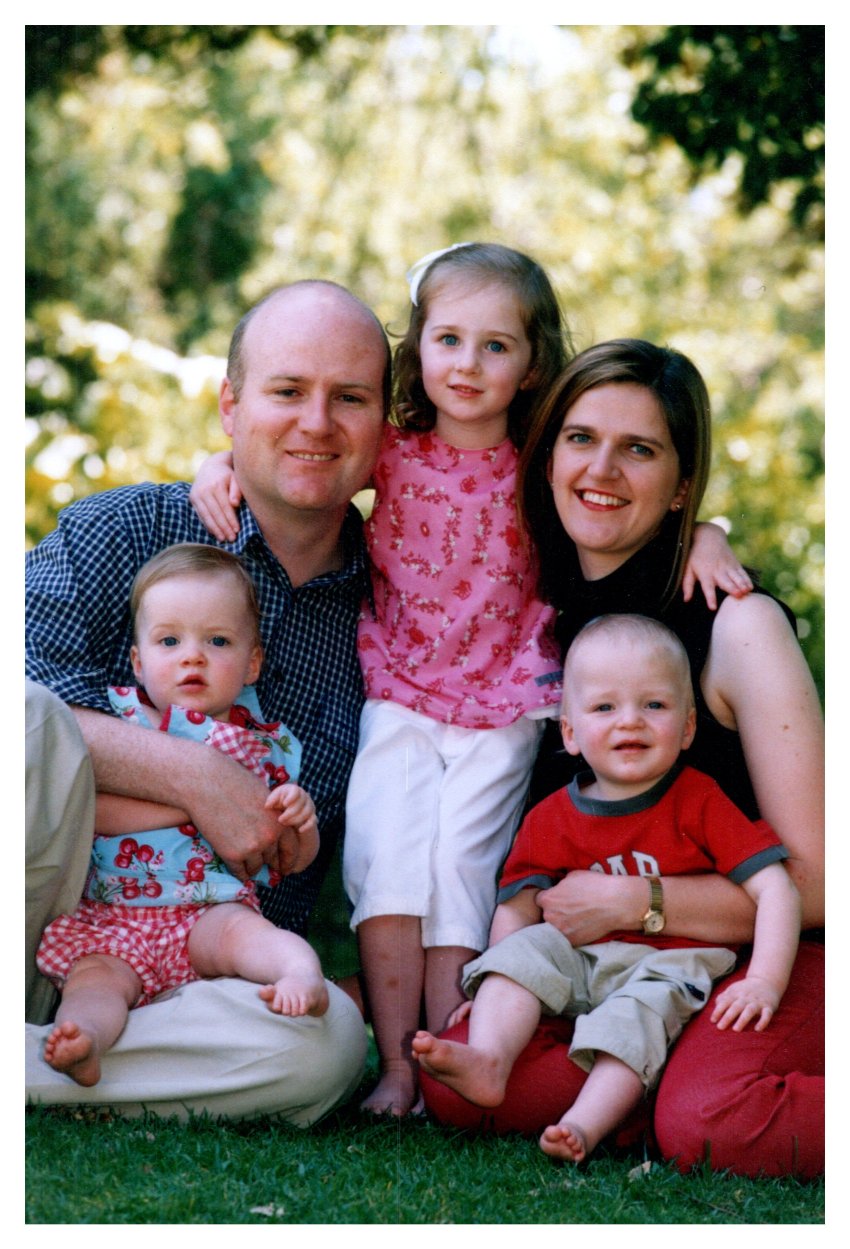
How many babies have you delivered?
I am afraid I’ve lost track now but a rough guess – somewhere around 6000.
What do you love most about your job?
I love that a typical working day for me is so often one of the most important and exciting days in a couple’s life. Obviously, being at the birth of a baby is a thrill that never, ever gets old, but the fun doesn’t stop there. I love meeting a first-time couple, understandably a little nervous at their first visit, and over the years witnessing them transform into capable and confident parents of (hopefully) several children.
This year I have had the pleasure of delivering identical triplet girls (a chance of about one in 100,000) and was delighted to deliver the first grandchild for Debbie, my nurse who has been with me since I began private practice. Just this week I was at the birth of four babies, informed another mother of three strapping sons that this time she is expecting a daughter, and on ultrasound I demonstrated to a new mother the cause of her severe morning sickness – she is expecting twins. That is more fun than a doctor is meant to have at work.
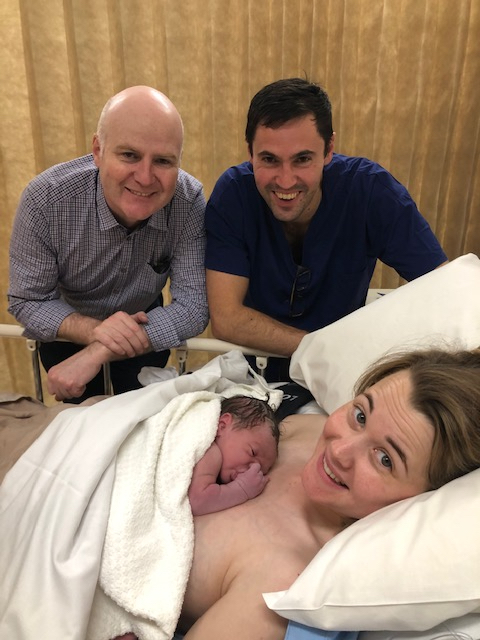
How do you cope when things go wrong?
The other side of having a job usually so joyful is that when things go wrong it is often the saddest time in a couple’s life. The loss of a child is devastating and something that can only be truly appreciated by someone who has been through it themselves. It is not a sadness Liz and I have experienced so I try to grieve privately, with the help of my staff and family, though admittedly I am not able to hold back my own tears when it happens. I guess I cope by knowing that creating a family really is a journey, mercifully usually with far more ups than downs. In that moment, it can be impossible for a couple to see a way forward, but I know in time there can be happier times ahead. They cannot expect to ever get over such a loss but hopefully, I can help them get through it.
What trends have you noticed over the years when it comes to creating a family?
When Liz and I embarked on parenthood 22 years ago, prospective parents got information from a few books and whatever the obstetrician or midwife chose to tell them. Now parents have an almost infinite amount of information available to them. It is not all great information, but telling them to “stay away from Dr Google” is just patronising. As their care provider, it is my job to help them navigate a way through all this information.
And mothers today push themselves very hard! My mother said she worked in jobs where, when you told the boss you were pregnant the reaction was, “Congratulations! We will have a farewell afternoon tea this Friday”, because the workplace was no place for a pregnant woman. We are all glad times have changed but now, too, many mothers think they are letting people down unless they remain at work until their contractions are five minutes apart. I don’t think motherhood was meant to be so competitive.
What qualities does it take to be a great obstetrician?
The ability to accept help and display gratitude to everybody who is there to help you out. The unpredictability of this job means I can be a less than reliable husband/parent/sibling/dinner attendee and I have inconvenienced a lot of people in my time. Fortunately, I have a brilliant team of family and friends to back me up. This particularly includes my colleague and ever-reliable backup Dr Darren Roberts and my brilliant staff Debbie, Julie and Melissa. You also need lots of brilliant midwives. Fortunately, I know plenty and it is gratifying that this year they are being recognised for the essential workers they have always been.
You must constantly bump into women who have been your patients?
I often run into women whose children I have delivered and it is great to catch up and see how the children have grown. Women can be less happy to run into their gynaecologist, though recently I did pass a group out on a Hen’s Night and The Hen called out “Hey, look girls! That’s my gyno”, which turned a few heads in the restaurant.
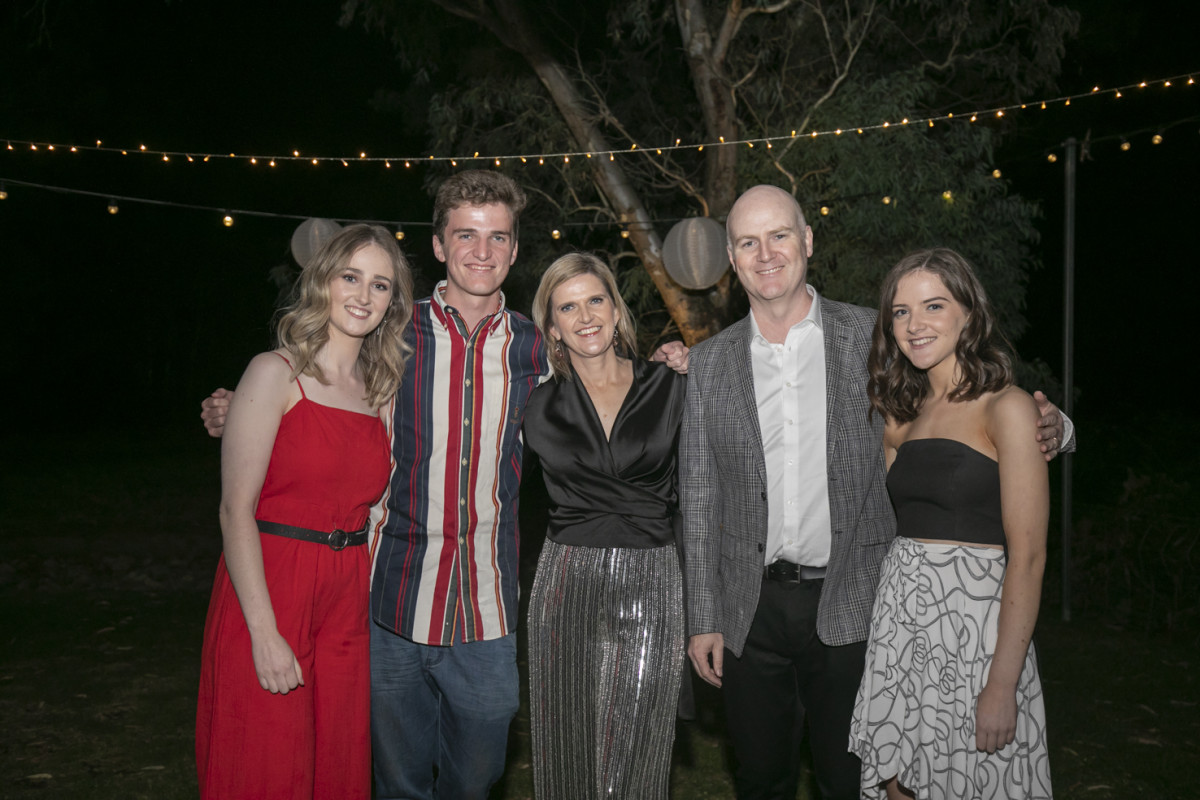
What is your view on home births?
Oh, people love to provoke a reaction from obstetricians with this question! However, I think it would be best asked of my paediatric colleagues. Working in neonatology and obstetrics in England, where home births occur more frequently, I learned that when a home birth goes wrong it is usually to the detriment of the baby, not the mother, and the paediatricians have to deal with the outcome. Every mother wants the best for their baby, so I would advise someone I cared about that the hospital is the safest place for the baby. Besides, amniotic fluid can really bleach the colour from your furniture and upholsteries.
What do you like to do away from work in your spare time?
I have only one skill outside of medicine – the ability to find and foster a fantastic group of friends. Liz and I are very social and love to entertain, eat out and attend concerts and theatre as much as we can. Neither of us travelled much when younger, so we are making up for it now and hope to do so again as soon as the world opens up again. I still watch a lot of movies and read.
What would you have done if you were not a doctor?
I really enjoy the theatre and would love to have been able to write really great plays or a musical comedy. Either that or write detective fiction.
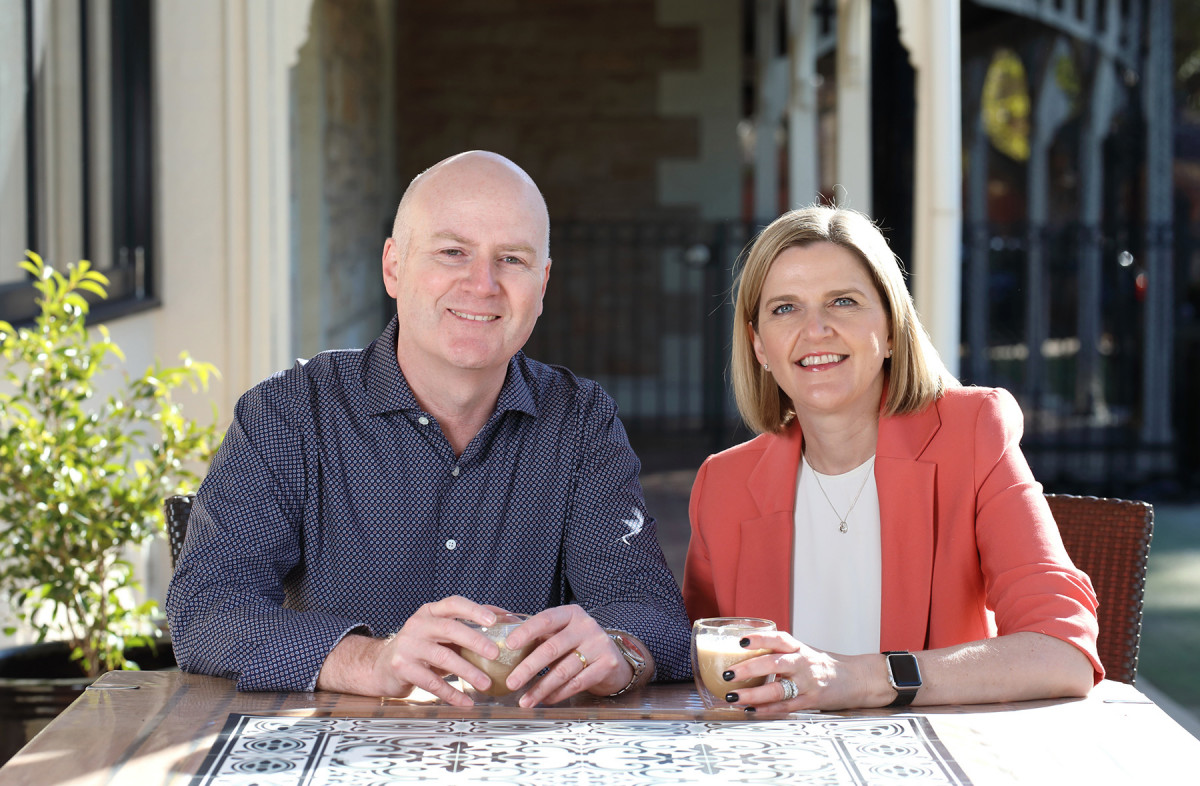
What is your life philosophy?
The only path to personal happiness is to try and bring as much happiness as you can to the people you care for. I am not sure that is noble enough to be called a philosophy, but it what I was taught and a very pleasant way to live.
Just once I wish I could ….
Wear a beanie without my children laughing and insisting I remove it.
How would you describe yourself?
Calm, even-tempered, funny (I think), thoughtful (I hope), fortunate and well mannered. Just an ordinary guy who happens to have a very extraordinary job.
What does the future hold?
Well, they weren’t kidding when they suggested Coronavirus would bring about a baby boom, 2021 is already looking very busy. I just hope Australia and the world opens again soon so my patients and my children can enjoy the freedom and fun we took for granted.
My South Australian Life is a first-person series, published each Sunday. Read our previous profiles here.
including free delivery to your door.



